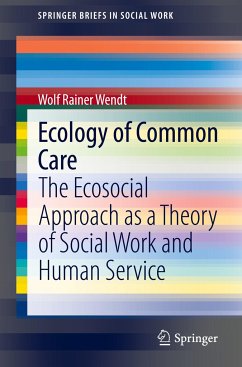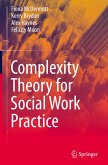This book offers an ecological foundation for social work and for care provision in general. It presents the ecosocial approach according to its origins, distinguishing it from other theoretical social work approaches and applying it to various areas of care for welfare. The ecological anchoring of social welfare and common care is an emerging topic in political, organisational, and person-related development of human services and social work. In an era of crisis, this anchoring is an essential contribution to the study of sustainable social provision. The book embeds the dispositions about it in the ecology of the protection and securing of common life.
Ecology of Common Care: The Ecosocial Approach as a Theory of Social Work and Human Service is an essential text that should engage the academic community of educators and researchers in social work and other human services professions, as well as students in bachelor's and master's programmes in these professions.
Ecology of Common Care: The Ecosocial Approach as a Theory of Social Work and Human Service is an essential text that should engage the academic community of educators and researchers in social work and other human services professions, as well as students in bachelor's and master's programmes in these professions.








